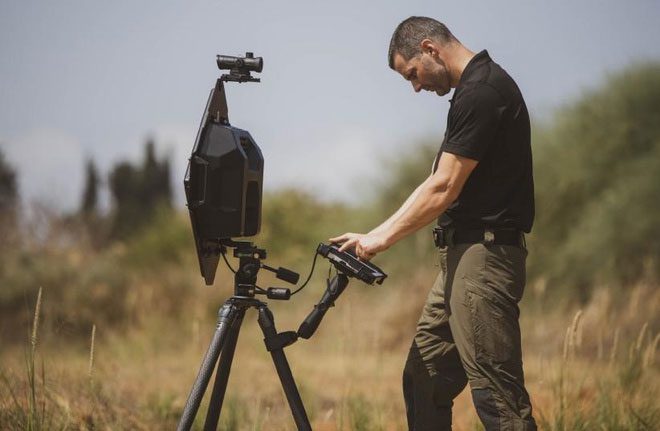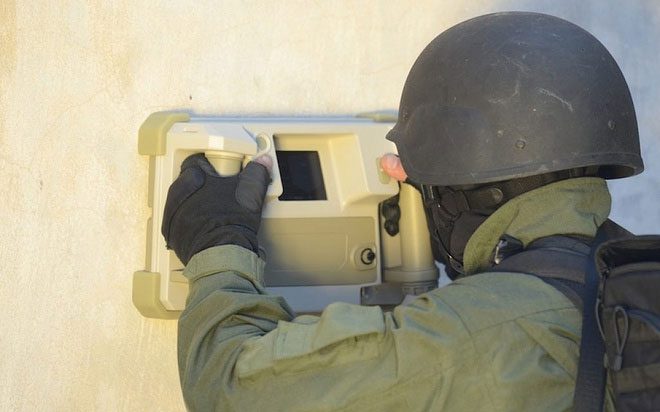The “through-wall” device is expected to be unveiled at a military exhibition in Paris next week.
Camero-Tech, a member of SK Group, is a company specializing in “through-wall imaging” solutions based on UWB (Ultra Wideband) technology. They have recently announced the Xaver LR40 (XLR40), a mobile system capable of detecting living objects behind walls from over 50 meters away.
According to J Post, this lightweight device can accurately identify the presence and number of moving objects behind walls in real-time.

Camero-Tech’s new XLR40 system. (Photo: Jerusalem Post).
XLR40 is part of the mobile imaging product line recently commercialized by Camero-Tech. In addition to the XLR40, the company is also marketing the XLR80 – a larger and even more powerful system that can detect living objects from over 100 meters away.
“We are proud to introduce the XLR40 system for the first time, a piece of our long-range system equipment line. There are many ways to utilize the XLR systems, such as placing them inside a moving vehicle; hiding them behind camouflage nets during covert missions; or placing them in apartments or rooftops close to target locations,” said Amir Beeri, CEO of Camero.
The device aims to provide ground forces with an advantage in situations requiring stealth operations, where tactical teams need to maintain a safe distance from targets. The device can also assist in search and rescue operations.
“All our radars are based on radio signals in the ultra-wideband frequency range. This means we send continuous pulses, and each pulse lies within a wide frequency range. Accordingly, we can actually penetrate through many physical walls,” said Ilan Abramovich, Vice President of Business Development, Sales, and Marketing at Camero-Tech.

Camero-Tech develops various products for military purposes in Israel. (Photo: Times of Israel).
In fact, this system is so sensitive that it can detect the slightest movements, such as breathing. However, similar to other UWB imaging systems, the only environment where this technology cannot penetrate is solid metal.
“Everyone knows that radio signals cannot pass through solid metal; this physical phenomenon is known as a Faraday cage. Aside from that detail, we can even see through reinforced concrete, metal mesh, steel grids, or small holes between metal wires,” a representative from Camero-Tech stated.
Camero-Tech will showcase its new system at Milipol, a biennial exhibition on homeland security and safety taking place from October 19-22 in Paris.
Over 1,000 representatives from 55 countries will participate in Milipol, including defense companies Elbit Systems and Rafael from Israel. The event is expected to attract around 30,000 attendees from around the world.

















































